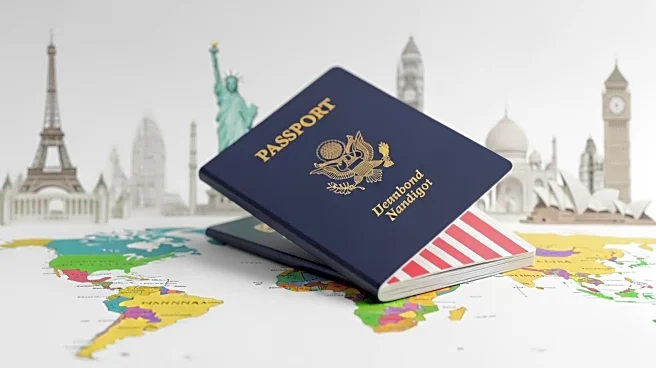What's Happening?
The United States passport has fallen to 12th place in the Henley Passport Index 2025, marking its first time out of the top 10 in 20 years. The decline is attributed to changes in international visa policies, including Brazil's termination of visa-free
access for US nationals and restrictions from several Asian countries. Meanwhile, Asian nations like Singapore, South Korea, and Japan have risen in the rankings, showcasing their growing influence in global mobility.
Why It's Important?
The drop in US passport ranking highlights challenges in global mobility for American travelers, potentially requiring more visas and pre-approvals for destinations previously accessible. This shift reflects the evolving landscape of international travel diplomacy, with Asian countries gaining influence. The change may impact US citizens' travel plans, affecting tourism and business travel dynamics.
What's Next?
As US travelers face increased visa requirements, there may be a push for diplomatic efforts to restore or improve travel access. The shift could lead to changes in travel patterns, with Americans exploring alternative destinations with easier access. The growing influence of Asian passports may encourage other countries to strengthen diplomatic ties with Asia to enhance travel freedom.
Beyond the Headlines
The decline in US passport power may prompt discussions on international relations and visa policies, influencing future diplomatic strategies. The shift could also impact perceptions of global mobility, highlighting the importance of strong international partnerships and agreements.
















